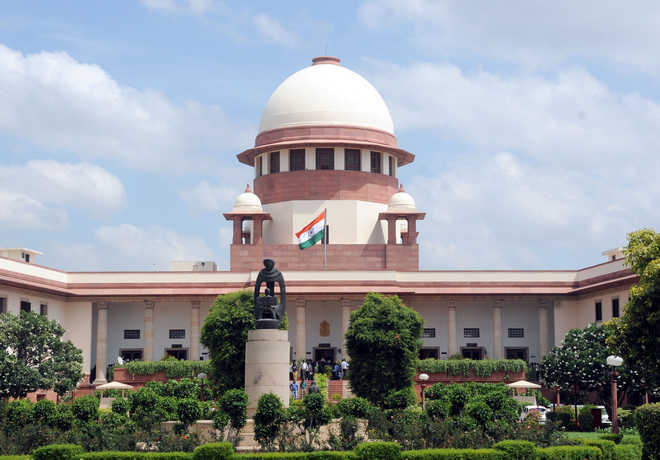Personal info can’t be shared under RTI Act
Satya Prakash
Tribune News Service
New Delhi, September 2
Service details of an employee can’t be shared with an RTI applicant as “personal information” is exempt from disclosure under the Right to Information Act, unless there’s a larger public interest involved, the Supreme Court has ruled.
Terming the RTI application as “wholly misconceived”, a Bench of Justice RK Agrawal and Justice AM Sapre set aside an order of the Kerala High Court.
Citing its earlier verdicts on the issue, the top court said personal information was exempt from disclosure under Section 8(1)(j) of the Act and can’t be shared with RTI applicants, unless there was larger public interest involved.
By an order dated September 20, 2007, the High Court had directed the Deputy General Manager of Canara Bank to part with information regarding transfer and posting of the entire clerical staff from January 1, 2002, to July 31, 2006, in all branches in Mallapuram district with CS Shyam, a clerk with the bank.
The High Court had upheld the order of the Central Information Commission which had reversed the decisions of Chief Public Information Officer and Public Information Officer not to part with the information asked for by Shyam.
Allowing the bank’s appeal against the High Court’s order, the top court restored the decisions of Chief Public Information Officer and Public Information Officer. The Bench said the RTI applicant failed to disclose “larger public interest involved in seeking such information of the individual employee”.
“We are of the considered view that the application made by respondent No.1 (Shyam) under Section 6 of the Act was wholly misconceived and was, therefore, rightly rejected by the Public Information Officer and Chief Public Information Officer whereas wrongly allowed by the Central Information Commission and the High Court,” the Bench said in its August 31 verdict.
Unlock Exclusive Insights with The Tribune Premium
Take your experience further with Premium access.
Thought-provoking Opinions, Expert Analysis, In-depth Insights and other Member Only Benefits
Already a Member? Sign In Now










